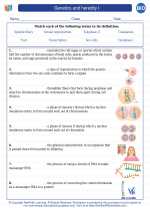Cytosine
Cytosine is one of the four main bases found in DNA and RNA, along with adenine, guanine, and thymine (in DNA) or uracil (in RNA). It is a pyrimidine base, meaning it has a single-ring structure.
Cytosine forms base pairs with guanine in DNA and RNA, and this pairing is essential for the structure and function of these molecules. The specific pairing of cytosine with guanine is due to hydrogen bonding between the two bases.
Within the context of genetics and molecular biology, cytosine plays a crucial role in the storage and transfer of genetic information. It is involved in the process of DNA replication, where it pairs with guanine to form new DNA strands. Additionally, cytosine can undergo chemical modifications, which can impact gene expression and regulation.
Study Guide for Cytosine:
- Structure: Understand the chemical structure of cytosine, including its single-ring pyrimidine structure and specific functional groups.
- Base Pairing: Learn about the complementary base pairing of cytosine with guanine in DNA and RNA, and the role of hydrogen bonding in this process.
- Function: Explore the role of cytosine in DNA replication, gene expression, and genetic information storage.
- Modifications: Investigate the potential chemical modifications of cytosine and their impact on gene regulation and cellular processes.
- Comparative Analysis: Compare and contrast the role of cytosine in DNA and RNA, noting any differences in function or pairing.
By mastering these aspects of cytosine, you will develop a comprehensive understanding of its significance in genetics and molecular biology.
[Cytosine] Related Worksheets and Study Guides:
.◂Biology Worksheets and Study Guides High School. Genetics and heredity I
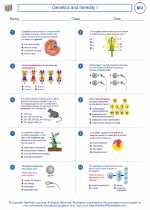
 Worksheet/Answer key
Worksheet/Answer key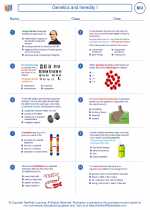
 Worksheet/Answer key
Worksheet/Answer key
 Worksheet/Answer key
Worksheet/Answer key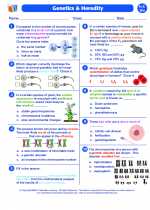
 Vocabulary/Answer key
Vocabulary/Answer key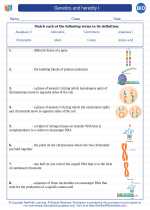
 Vocabulary/Answer key
Vocabulary/Answer key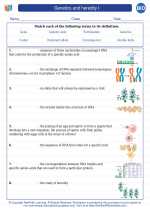
 Vocabulary/Answer key
Vocabulary/Answer key
 Vocabulary/Answer key
Vocabulary/Answer key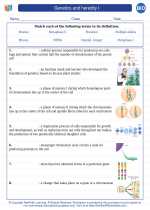
 Vocabulary/Answer key
Vocabulary/Answer key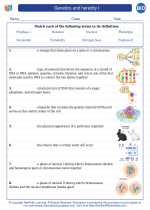
 Vocabulary/Answer key
Vocabulary/Answer key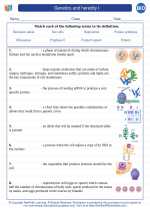
 Vocabulary/Answer key
Vocabulary/Answer key